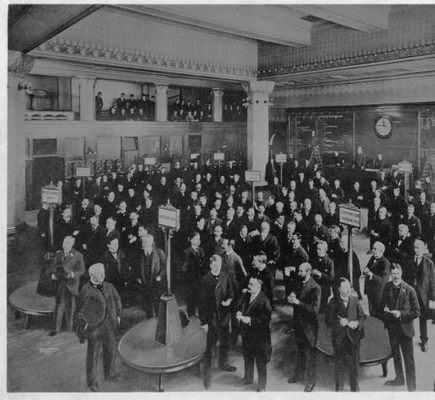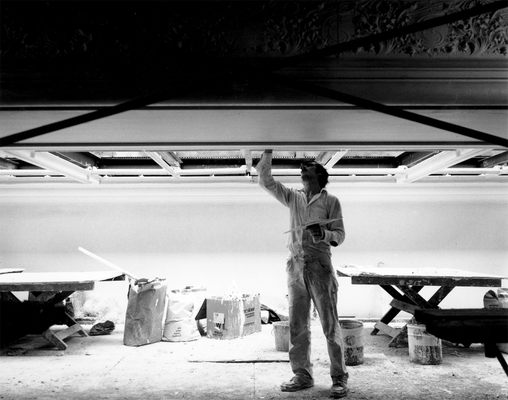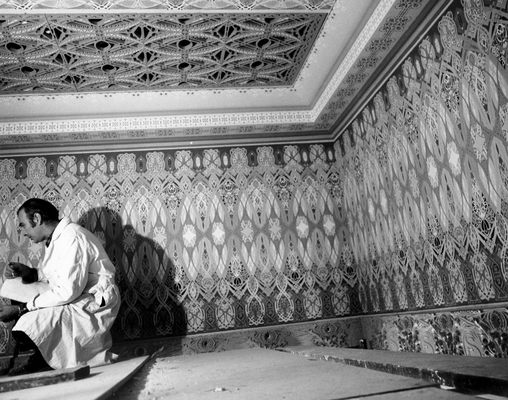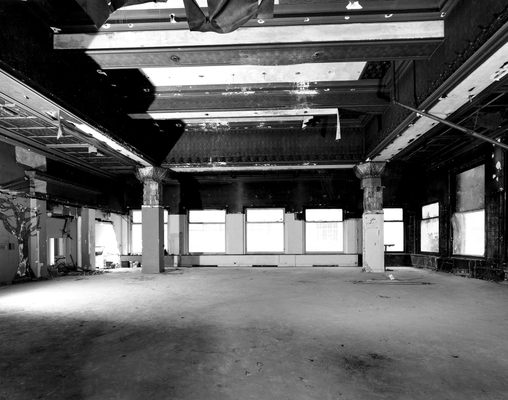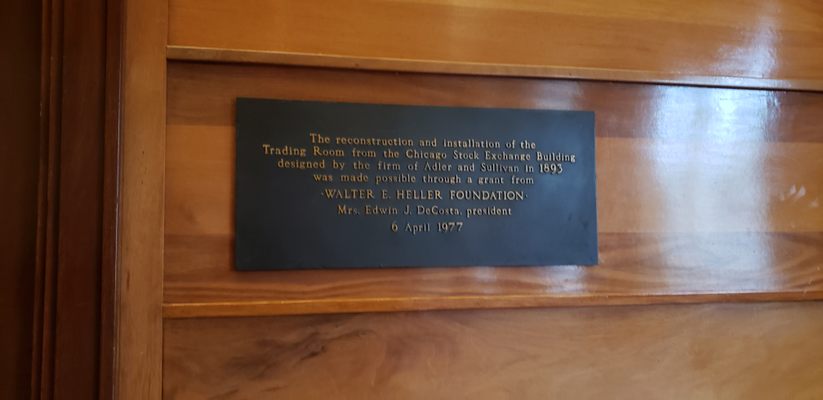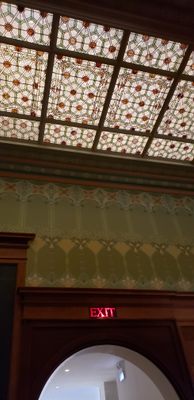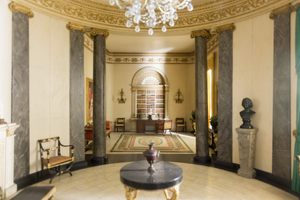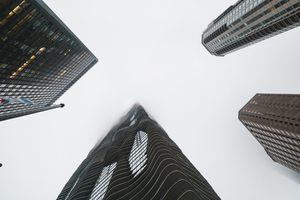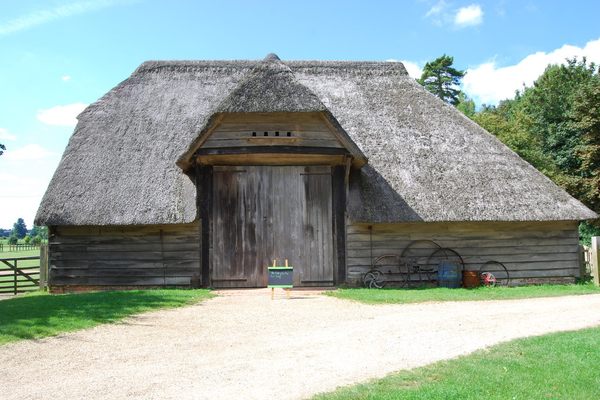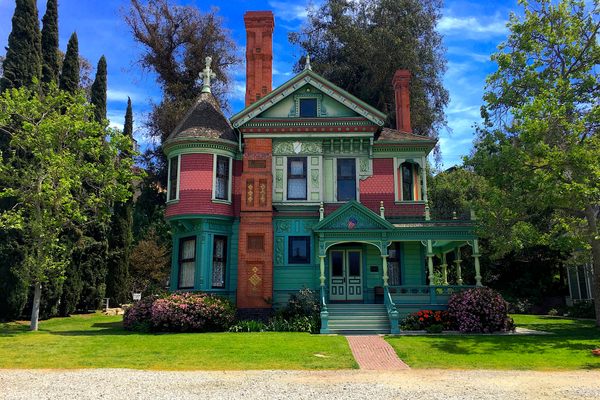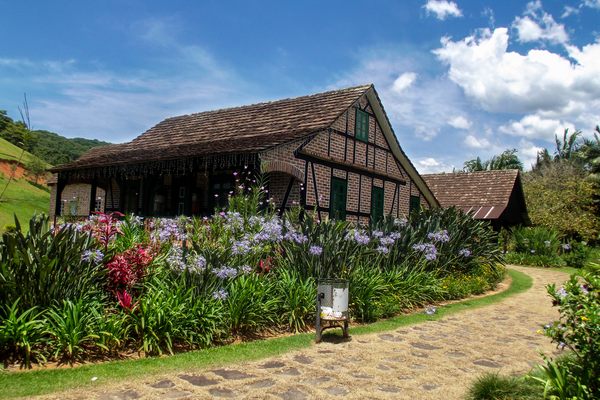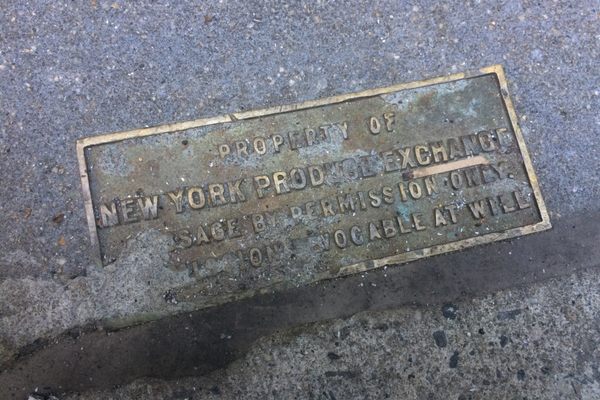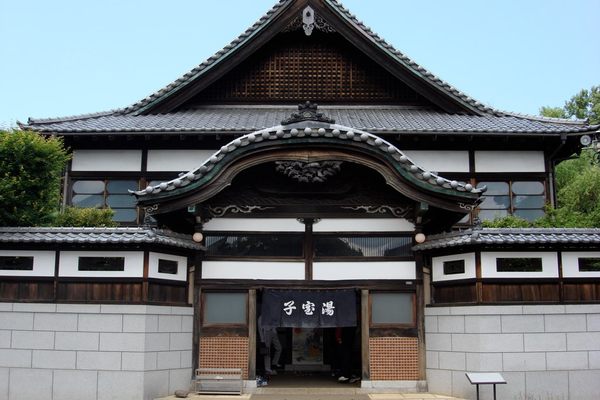About
The meticulously recreated Trading Room is one of the few extant remains of the historic Chicago Stock Exchange building, designed in the 1890s by famed architects Louis Sullivan and Dankmar Adler (the ones responsible for bringing the then very modern Art Nouveau style to the United States). The space was almost lost to the wrecking ball in a misguided 1970s urban redevelopment scheme.
The Trading Room is a double-story, 100 by 75-foot institution of Midwestern finance. The ornate hall was once the scene of commodity deals that set the price of vegetables and meat across the country. Its decorative flourishes include beautiful organic wall stenciling (a now-forgotten craft that once defined Chicago design), and intricate stained glass skylights.
It’s a quiet and contemplative space today, but when it was in operation the Trading Room was the scene of frenzied activity. A Chicago Tribune reporter in 1960 described how “the shouts of the white coated, gray coated, and tan coated men” imparted a “sense excitement and tension even tho [sic] you don’t understand precisely what they are doing.”
By the 1970s the old Stock Exchange building had fallen into disrepair and was deemed “economically unviable” by its owners. According to Chicago historian Richard Cahan, the preservation and relocation of the Trading Room was “the price paid for the demolition permit.”
Photographer Richard Nickel and architect John Vinci were instrumental in the salvage work. Cahan records the challenge they faced when work began on November 8, 1971:
“The ceiling was dirty and peeling. Many of the stenciled canvases had fallen off or been ripped off for souvenirs. Dirt from decades of neglect had piled up so high that mice or rats had carved paths through it. It took a great leap of the imagination to see the beauty here. Even the gilded capitals looked like cheap plaster. But Vinci and Nickel knew the true beauty of this huge and foreboding place. ‘I think of it sort of like a holy room,” said Nickel after the work had began. ‘The more you are in here the more you are in awe of it.”
Over the course of three months they documented the room and then unscrewed, pried and sawed off every bit they could carry. The entire thing was rebuilt inside the Art Institute’s new wing in 1976. Nickel was tragically killed in 1972 accident inside the old Stock Exchange and never lived to see the completed Trading Room.
Related Tags
Know Before You Go
The Art Institute of Chicago is open daily 10:30 am to 5:00 pm., until 8:00 on Thursdays. Closed Thanksgiving, Christmas, and New Year's Day. Ticket purchase is required to visit The Stock Exchange Trading Room. The Stock Exchange Arch is accessible to the public at no charge outside the Modern Wing entrance at E Monroe St and S Columbus Drive.
Community Contributors
Added By
Published
January 18, 2017
Sources
- http://archives.chicagotribune.com/1960/04/24/page/270/article/closeup-view-of-stock-exchange-floor-intense-exciting-vital
- https://books.google.com/books?id=XLA4ciaCZ20C&pg=PA209&lpg=PA209&dq=John+Vinci+salvage+stock+exchange&source=bl&ots=QX7l-tl4Gl&sig=jiyA1wqJU0vILdwrjuLiM3jIJQA&hl=en&sa=X&ved=0ahUKEwiVmYbEyrDRAhXK5oMKHUu8B1sQ6AEIUDAK#v=onepage&q=John%20Vinci%20salvage%20stock%20exchange&f=false
- https://en.wikipedia.org/wiki/Richard_Nickel
- http://www.artic.edu/aic/collections/artwork/156538
